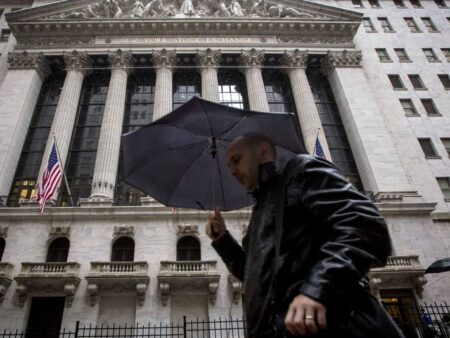(Reuters) – U.S. banks Citigroup (NYSE:) and Bank of America said on Tuesday they are exiting the Net-Zero Banking Alliance (NZBA), a group of global banks that have pledged to curb greenhouse gas emissions.
They follow Wells Fargo (NYSE:) and Goldman Sachs, which both left the alliance earlier this month.
Financial firms, historically criticized for their connections to the fossil fuel industry, have made efforts to incorporate net-zero standards more prominently into their operations.
However, they have begun scaling back on some initiatives to avoid irking Republican policymakers who are opposed to limiting the financing of fossil fuels.
Citi said it had made progress toward its own net-zero goals and decided to leave the NZBA.
BofA, in an emailed statement to Reuters, said: “We will continue to work with clients on this issue and meet their needs.”
The NZBA aims to bring down carbon emissions from the lending and investment portfolios of its members to zero on a net basis by 2050.

Last month, BlackRock (NYSE:), Vanguard and State Street (NYSE:) were sued by Texas and 10 other Republican-led states, which said the large asset managers violated antitrust law through climate activism that reduced coal production and boosted energy prices.
(This story has been refiled to add dropped words in the quote in paragraph 6)
Source link

















